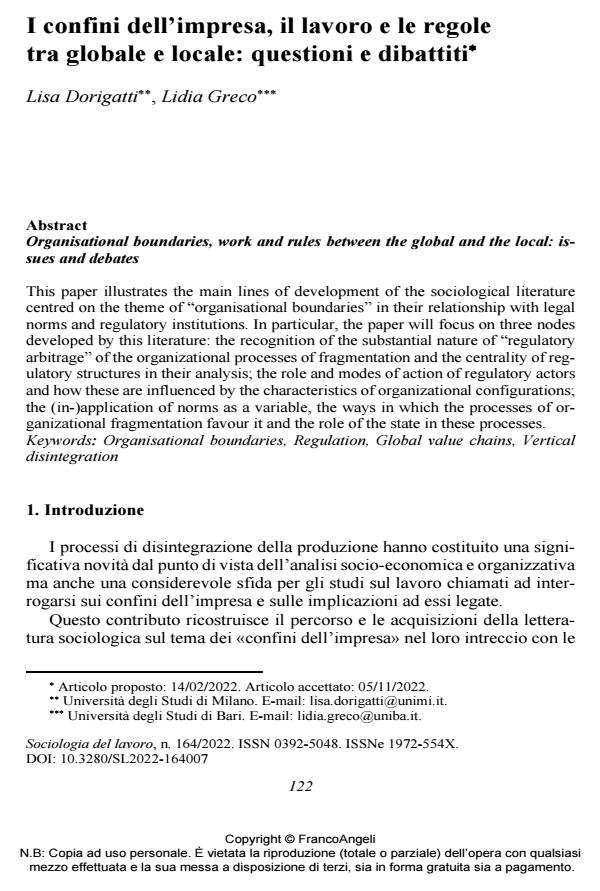I confini dell’impresa, il lavoro e le regole tra globale e locale: questioni e dibattiti
Titolo Rivista SOCIOLOGIA DEL LAVORO
Autori/Curatori Lisa Dorigatti, Lidia Greco
Anno di pubblicazione 2022 Fascicolo 2022/164
Lingua Italiano Numero pagine 18 P. 122-139 Dimensione file 231 KB
DOI 10.3280/SL2022-164007
Il DOI è il codice a barre della proprietà intellettuale: per saperne di più
clicca qui
Qui sotto puoi vedere in anteprima la prima pagina di questo articolo.
Se questo articolo ti interessa, lo puoi acquistare (e scaricare in formato pdf) seguendo le facili indicazioni per acquistare il download credit. Acquista Download Credits per scaricare questo Articolo in formato PDF

FrancoAngeli è membro della Publishers International Linking Association, Inc (PILA), associazione indipendente e non profit per facilitare (attraverso i servizi tecnologici implementati da CrossRef.org) l’accesso degli studiosi ai contenuti digitali nelle pubblicazioni professionali e scientifiche.
L’articolo ricostruisce il percorso e le acquisizioni della letteratura sociologica sul tema dei "confini dell’impresa" nel loro intreccio con le norme giuridiche e le istituzioni regolative. In particolare, si focalizzerà su tre nodi sviluppati da questa letteratura: il riconoscimento della sostanziale natura di "arbitraggio regolativo" dei processi organizzativi di frammentazione e di scomposizione della produzione e la centralità degli assetti regolativi e istituzionali nella loro analisi; il ruolo e le modali-tà di azione degli attori della regolazione e come queste sono influenzate dalle ca-ratteristiche delle configurazioni organizzative; la (non) applicazione delle norme come variabile, i modi in cui i processi di frammentazione organizzativa la favori-scono e il ruolo dello stato in questi processi.
Parole chiave:confini organizzativi, regolazione, catene globali del valore, disintegrazione verticale
Lisa Dorigatti, Lidia Greco, I confini dell’impresa, il lavoro e le regole tra globale e locale: questioni e dibattiti in "SOCIOLOGIA DEL LAVORO " 164/2022, pp 122-139, DOI: 10.3280/SL2022-164007